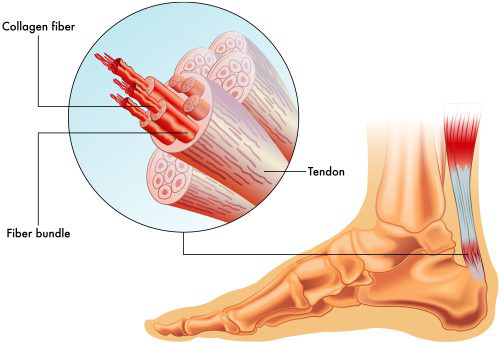
Achilles Tendinopathy
Jack Nuske
12/04/2024
Know how to manage and rehabilitate
If you have ever decided to get on that health kick and start running, you will know it feels great when you’re achieving your goals. However, this can often be preceded by the flattening feeling of helplessness when aches and pains begin to settle in afterwards. Unfortunately, during lockdown running and walking is the only outlet for exercise, so it’s important to understand how to prepare and manage your body in order to get the most out of physical activity. Pain in the achilles tendon is one such pain and can be a risk factor for serious injury. It is estimated that 9% of runners experience pain in this area.

What is the cause?
Achilles tendinopathy is caused by repetitive overuse injury that is common in runners who increase load suddenly. Tendinopathy is the term that describes alterations in tendon structure due to increases in load without adequate time to react and repair. There are different stages of these alterations thus it is important to be proactive when managing these types of injuries.

What does it feel like?
The hallmark sign will be pain around the tendon in the back of your ankle, particularly in the morning and can be worsened during/after running or exercise. Swelling can also be seen around the tendon. Pain can be felt at different locations in the achilles which can determine your recovery and what kind of rehab you will need to do.
How is it treated?
There has been a lot of research into tendinopathy in general in the last decade which has improved outcomes substantially. This means that there is excellent outcomes in the vast majority of cases, however again, early management is important to prevent and reverse muscle and tendon changes to return you to your baseline function and mobility. Research points to specific strengthening exercises to load the tendon appropriately with adequate recovery and rest time between rehab sessions. Your therapist may also direct attention to other potential causes that may have originally instigated the tendinopathic changes in your achilles, such as footwear and looking further up the chain to your knee and hip.
It is essential to have a physiotherapist assess your condition as early as possible. Testing of your ankle and lower limbs will guide management and get you on track to achieving your goals sooner!
 Instagram
Instagram Social | News
Social | News




